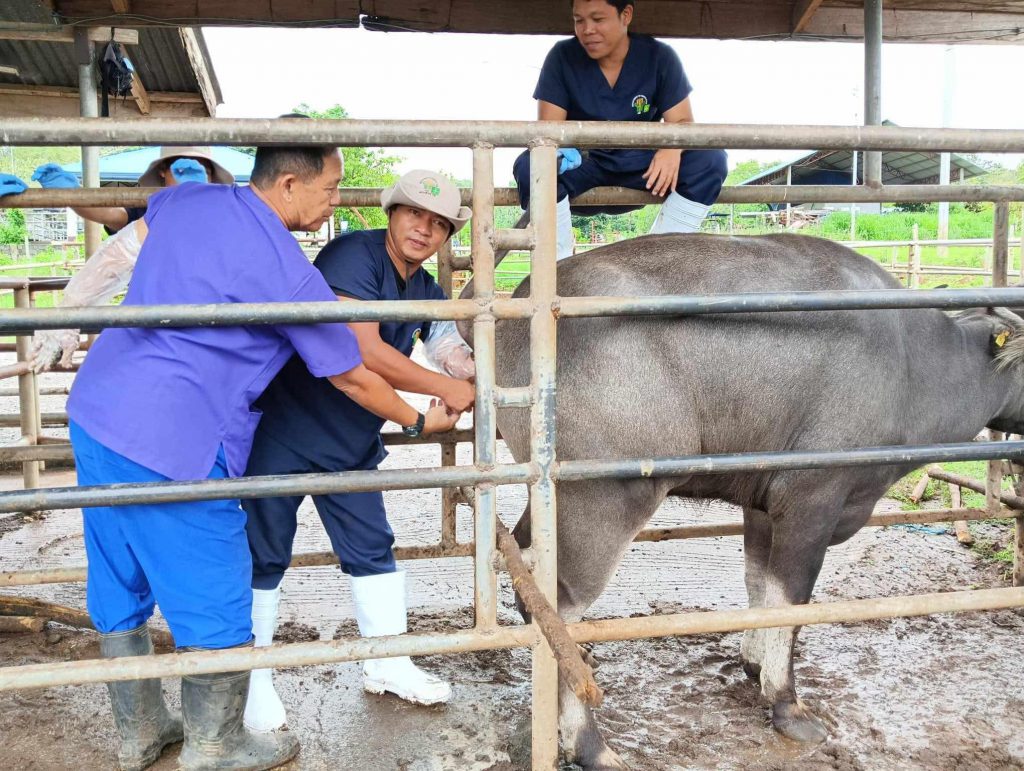Nineteen young farmers were among the 55 graduates of the modular Farmers Livestock School on Dairy Buffalo Production (FLS-DBP) during a ceremony held at the Hamtic Multipurpose Cooperative Covered Gym, Poblacion II, Hamtic, Antique on June 21, 2024.
The traditional FLS-DBP sessions typically span 15 days. However, the modular approach, led by FLS-DBP trainer and Project Development Assistant II Angeline Javier, conducted sessions on-site in each cluster for two hours per session. This format allowed young farmers to attend despite their weekday classes. The sessions ran from April 24, 2024, to June 21, 2024.
Elmer G. Misajon, the 2024 Class Valedictorian in the Farmers Category, reflected on his training experience and emphasized the challenges and learnings in dairy buffalo production.
“Our learnings are not limited to the subjects we had; the training was a way for us to gauge our determination and commitment in taking care of our carabaos. During the training, I thought raising a carabao was ‘basic,’ just feeding it and making sure it’s full, but it’s actually more than that. Here, I realized that dairying can be a family enterprise,” he said in Filipino.
Felmar M. Sarad, the 2024 Class Valedictorian in the Youth Category, encouraged his peers to view the dairy industry as a sustainable source of family income.
“We, the new generation, need to support our parents in farming and not turn our backs on agriculture. Not to brag, but I’m hands-on in our dairy farm. Our training is a significant boost to our livelihood and will help make Sarad Dairy Farm well-known worldwide,” Sarad shared.
The graduation was officiated by Janice H. Cuaresma, CBED coordinator of DA-PCC at WVSU, with Marciano T. Virola, Jr., senior cooperative advisor of AgriTerra, serving as the guest speaker.
The event was one of the highlights of the 57th foundation anniversary of Hamtic Multi-Purpose Cooperative, one of the conduit cooperatives under the Carabao-based Business Improvement Network.
Attendees included Hon. Liberty Bertolano, SB-Member of Hamtic, Committee on Agriculture, Feliza E. Labrador, MPA, General Manager of Antique Federation of Cooperative, Mercy Gabasa, Acting Supervising CDS, Cooperative Development Authority, Lanelyn T. Beliceña, Provincial Cooperative Specialist, and Jasmine Tejada, VICTO Representative.









